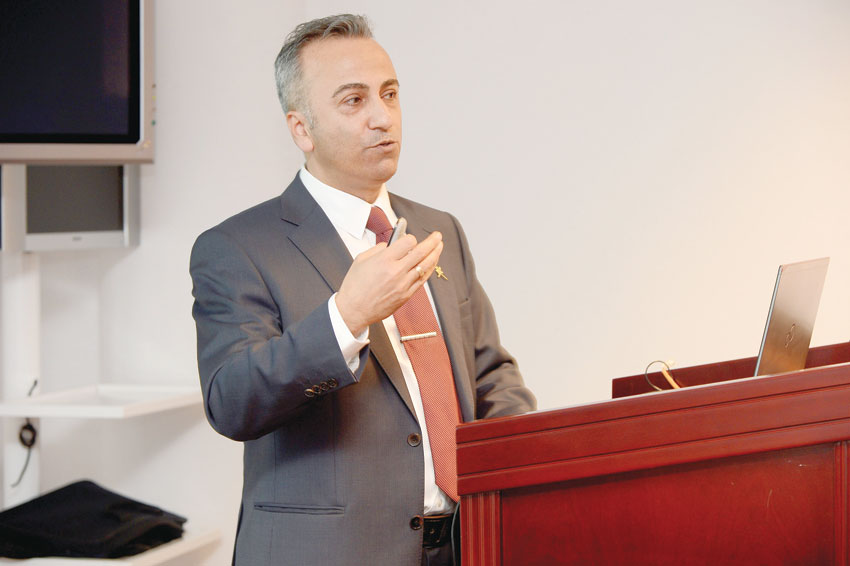

MUSCAT: The Office of the Deputy Vice-Chancellor for Postgraduate Studies and Research at SQU organised a talk on ‘Marine biotechnology: Contribution to sustainable economy’, delivered by Dr Madjid Delghandi, Senior Researcher, Centre of Excellence in Marine Biotechnology at SQU.
Oman has embarked on an ambitious path to expand and diversify the fishery through aquaculture — the farming of fish, molluscs, crustaceans and seaweed. In support of future aquaculture development in Oman, the Ministry of Agriculture and Fisheries (MoAF) has conducted extensive surveys of potential sites, developed a comprehensive guide to better management practices for Oman aquaculture, developed a national strategic plan and in collaboration with FAO and Sultan Qaboos University has published a critical review of food safety and environmental issues.
The successful development of modern aquaculture, which currently accounts for more than half of all seafood consumed, has been driven by scientific and technological innovation. It is widely recognised that emerging biotechnologies hold the key to future expansion through their direct applications in the critical areas of fish reproduction, health and nutrition.
The applications of modern tools have led to spectacular gains in the production of traditional crops and farm animals. Dr Delghandi said, “in aquaculture, there has been limited application of new biotechnologies and most farmers, including those in Oman, are working with wild stocks collected from the capture fishery.”
“New biotechnology-linked resources are needed in Oman if advanced selective breeding programmes are to be developed and the potential genetic gains realized for the economic benefit of fish farmers”, he said.
Centre of Excellence in Marine Biotechnology at Sultan Qaboos University undertakes currently a multi-disciplinary research approach to bring new research focus to the challenges of in fisheries and developing marine hatchery protocols for the selective breeding and mass rearing of indigenous species of juvenile fish and shellfish. This is a vital component of all future commercial fish farming and fishery enhancement programmes.
“A successful management will ensure a sustainable exploitation of marine resources in Oman and contribute to diversification of economy, generate wealth, foreign currency earnings via export as well as increase well-paid skilled employment and the domestic supply of healthy seafood”, Dr Delghandi said.
Oman Observer is now on the WhatsApp channel. Click here



